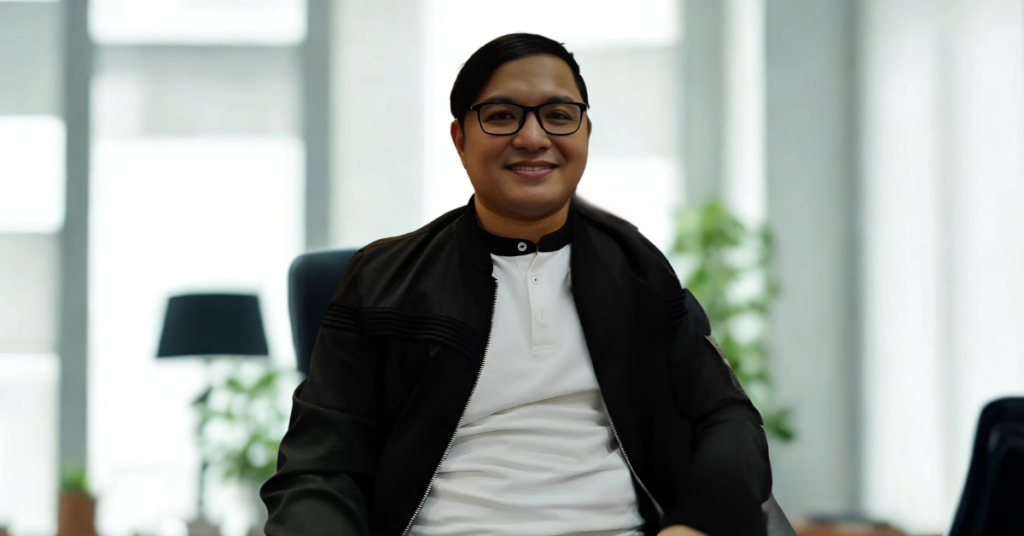Most people wait until they’ve “made it” before signing up for a professional designation. Jesse James Cooley Llamado did the opposite. He became a Registered Financial Planner (RFP) when his finances were barely holding together. “I was broke,” he says plainly, “but I knew something had to change.”
What followed wasn’t just a certification—it was a personal transformation built on discipline, reflection, and purpose. Today, Llamado mentors others on the same journey he took—starting from scarcity and growing into stability, not by chasing higher income, but by shifting mindset and habits first.
The Scarcity Mindset Runs Deep
Growing up in a low-income household, Llamado was surrounded by words like kulang, bitin, and utang—the language of lack. “When that’s the background you hear daily, it shapes how you think about money,” he explains. “It feels like you’re always starting from behind.”
His mother was the sole provider and often took out loans just to keep the family going. That upbringing left an imprint: money always felt just out of reach, and financial security seemed reserved for other people.
It wasn’t until a college friend handed him a copy of Rich Dad, Poor Dad that the first cracks appeared in that limiting belief. “That book opened up the idea that money could be a tool,” he says. “Financial freedom wasn’t just a dream—it was a mindset shift.”
Why a Broke Professional Took the Leap
Despite an academic background in accounting and finance, personal money management remained elusive. “It’s easy to analyze someone else’s numbers,” he admits. “It’s harder to look at your own finances without emotion.”
That contradiction finally pushed him to enroll in the RFP program. Encouraged by a mentor—Randell Tiongson, a director of the program and his spiritual advisor—he decided to take the plunge.
“It wasn’t about adding a title,” Llamado says. “It was about getting the discipline and structure I never learned growing up.”
Even without savings, he saved up for the fee. “I saw it as a personal investment. I was at the bottom, but I wanted to rise with structure—not just hustle.”
Structure Over Salary
The program didn’t magically increase his income. But it gave him tools to take control. Llamado learned to build a weekly and monthly financial system—from tracking expenses and writing his own personal balance sheet to setting five-year financial goals.
“I wasn’t earning much, but I was finally organizing my money,” he says. “I saw where it went, why I was always short, and how I could gradually shift.”
He credits the personal financial planning exercise—especially the five-year roadmap—as a turning point. “It forced me to ask hard questions: What do I want? Why do I want it? What’s really holding me back?”
Practicing on Friends Before Building a Career
With no clients yet, Llamado began applying what he learned with friends. He drafted financial plans for free, guided by one simple principle: practice with purpose.
“I wanted to serve first,” he says. “I thought, if it worked for me, I could help others do the same.”
This early, unpaid work eventually built his confidence and credibility. Referrals followed, and a steady client base emerged. “Money came later,” he adds. “The mission came first.”
Why RFP Was the Start, Not the End
Many treat certifications as a finish line. For Llamado, it was the beginning. After getting his RFP license, he kept attending learning events, joining financial forums, and seeking wisdom from peers and mentors.
“I didn’t want the growth to stop,” he says. “The more I invested in learning, the more valuable I became—not just to clients, but to myself.”
He went on to teach financial literacy programs in universities and companies, reinforcing the idea that personal finance isn’t just about numbers—it’s about values, habits, and mission.
Discipline: The Real Asset
Ask Llamado what really changed his life and he doesn’t say “more money” or “a higher salary.” He says discipline.
“It’s easy to earn more. But if you don’t have discipline, you’ll just spend more,” he explains. “That’s why I teach it all the time—it’s the foundation of everything else.”
Even now, with a stable income and a growing practice, he keeps the systems in place: weekly tracking, monthly audits, and ongoing learning. The structure hasn’t changed—only the numbers have.
Lessons from a Risk That Paid Off
For anyone sitting on the fence about investing in financial education or getting certified, Llamado offers this perspective:
Start before you feel ready. Waiting for the “perfect time” only delays transformation.
Discipline beats income. Without structure, a raise solves nothing.
Mission drives momentum. A purpose larger than profit keeps you going, even when cash is tight.
Serve before selling. Credibility grows when impact comes first.
Final Word: The Real Payoff
Becoming an RFP while broke wasn’t a leap of logic—it was a leap of faith. But that step changed everything. “It was one of the best decisions I ever made,” Llamado says. “Not because of what I earned, but because of who I became.”
From scarcity to structure, the journey didn’t require perfect finances—just the decision to start, and the discipline to stay the course.
![]()



